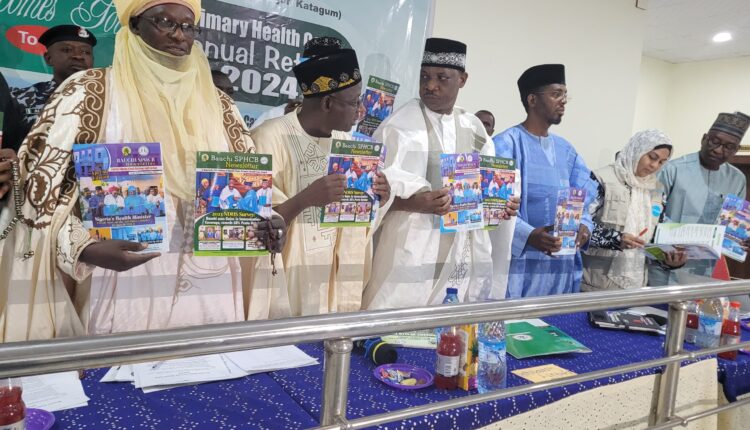The United Nations Children’s Fund (UNICEF) Bauchi Chief Field Office has decried the 30 per cent of deliveries taking place in healthcare facilities in the state.
Dr Nuzhat Rafique, Chief of Field Office, UNICEF Nigeria-Bauchi Field Office, expressed this on Tuesday during the 2024 Bauchi State Primary Health Care Annual Retreat in Gombe.
The retreat has the theme: ‘Toward achieving Sustainable Primary Health Care Financing in Bauchi State’.
Rafique stated that maternal mortality, child mortality, and newborn mortality were still high in Bauchi State, in spite of efforts put in place by stakeholders.
She attributed some of the reasons for the high mortality to deliveries taking place at homes, stating that 7 out of 10 deliveries in Bauchi State took place at homes.
According to her, the risk of a newborn dying are higher at home since there are no healthcare professionals to attend to cases of emergencies, should they come up.
She stated that public health studies had shown that having skilled birth attendants and a functional healthcare system were key to improving newborns’ care while reducing under-five mortality.
“But if you see how Bauchi is doing, out of 10, 7 deliveries are taken at home, that is how poor the services are.
“These deliveries should be taken at the facility under the supervision of skilled birth attendants which could be a midwife, doctor or nurse.
“If there is any complication, the women and newborns can be taken care of or referred to a higher level facility and that is the life-saving intervention.
“Newborn mortality is very high and recent data shows that there has been not much changes.
” We should not be happy about the figures which are shown by DHS.
“These are gloomy moments for us and the situation is bleak in Bauchi for newborns and those under five.
“Newborn mortality is caused by unattended birth attendants whereby mother and child lose their lives.
“Even if either of them survives, there is still a high risk of death for the surviving one,” she said.
The UNICEF official stated that the primary healthcare system needed to be strengthened to ensure that the start of a new life was in a safe hand.
She noted that progress was being recorded in vaccination but stressed that there were many LGAs in Bauchi State still recording zero-dose children (children who have never been vaccinated).
She stated that such violated the rights of children, adding that vaccination and a complete one was the right of every child.
Rafique stated that it was because of the gaps in the primary health care system that UNICEF was partnering with the state government to address the challenges.
She said that UNICEF had invested a lot of resources in the health sector toward improving the health of residents of the state.
According to her, 53 per cent of the total investment of UNICEF in Bauchi State in 2024 went into health alone.
“UNICEF works for five sectors but health is given more than half of the investment; that is a great contribution,” she said.
She urged the state government to increase its share of primary health care to achieve more enhanced health care service deliveries.
She also urged the state government to prioritise birth registration, hygiene, vaccination, health services, schooling, sanitation, safe water, and nutrition as they were key to improving the health of mothers and children in the state.
For his part, Mr Mohammed Jatau, the Deputy Governor of Bauchi State restated the state government’s commitment to improving the health care system in the state.
Jatau, while highlighting key achievements recorded by the state in primary health care delivery, said the feat was achieved through the collective efforts of all stakeholders through the support of development partners.
“I am happy to see some progress recorded in the 2023 NDHIS Survey where the state has moved from 31 per cent to 58 per cent in Penta 3 coverage.
“We were ranked best, second to Adamawa in the country, though, a marginal progress was recorded in some of the indicators such as maternal and child health.
“While in the aspect of nutrition, together we need more commitment and support to improve health services in all levels of care,” he said.
He urged all stakeholders to work closely during the retreat to device result-oriented strategies to ensure improvement of the overall health indicators of the state.
Jatau commended the Federal Government through its various health agencies, the Aliko Dangote and Bill and Melinda Gate’s Foundations, UNICEF, WHO and other developmental partners for their technical and financial support to the state.


